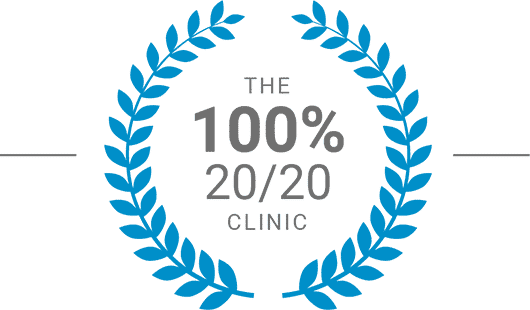Book Your Free Consultation
Mr David Allamby
MD, FRCOphth, FRCS
If you’re thinking of embarking on the journey towards clearer vision through Refractive Lens Exchange surgery (RLE), you’re about to make an exciting decision that could change your life. At Focus Clinics, we think the movement towards seeing clearly begins with clarity over the type of surgery you may undergo.
From understanding the procedure to practical tips for preparation, we’ll guide you through the crucial steps leading up to it, including what to do before RLE surgery.
Discover the proactive measures and considerations that can enhance your confidence, soothe your anxieties, and contribute to a positive outcome of clear vision.
Join us in navigating the essential preparations for RLE surgery and taking the first step towards a life with improved vision.
Whilst the choice of surgery to reduce your reliance on glasses or contact lenses will be down to your surgeon, knowing the range of options available at Focus Clinics is the first step to informed and safe choices.
You may also see RLE described as Clear Lens Exchange (CLE) or Lens Replacement Surgery. It’s a sophisticated vision correction procedure designed to address a range of refractive errors.
During RLE, your natural eye lens is gently removed and exchanged with an artificial intraocular lens (IOL). This IOL will have been customised to your specific vision issue and prescription, allowing for a precise visual enhancement. It’s typically quick and minimally invasive, rarely taking more than 30 minutes to complete per eye.
If you’re wondering what to do before RLE surgery, knowing whether it’s the right surgery for you is top of the list:
RLE is commonly performed on individuals over the age of 50, typically those experiencing presbyopia (the need for reading glasses).
Your prescription may be moderate to severe degrees of hyperopia (longsightedness).
If you are unsuitable for LASIK or phakic IOL (ICL) treatments.
Your eyes must be in otherwise good health, aside from your prescription, with no glaucoma or cataracts.
Understanding the potential benefits and limitations of RLE is crucial. Realistic expectations and a willingness to follow post-operative care instructions contribute to eye healing and eventual successful outcomes.
Any corrective eye surgery, while significantly improving vision, does not guarantee perfect outcomes. Like any surgical procedure, RLE carries potential risks and side effects, such as temporary blurring or dry eyes. In rare cases, additional enhancements (or retreatments) may be necessary to fine-tune the results of RLE.
Recognising the importance of your individual eye characteristics, willingness to follow your post-op treatment schedule and attend follow-up appointments, and an understanding that the need for retreatment is a distant possibility are all vital parts of the right mindset for RLE.
As with any surgery, discussing your overall health with your surgeon prior to RLE surgery is vital to ensuring a positive outcome. Whilst RLE is a generally safe and effective procedure, certain health conditions may impact your eligibility or the chance of complications.
Health Condition Or Medication | Why Should I Mention This? |
|---|---|
Uncontrolled diabetes | Poorly managed diabetes can impact the healing process and increase the risk of complications. |
Autoimmune disorders | Rheumatoid arthritis, lupus, or AIDS may affect the healing process of RLE surgery. |
Eye diseases | Affecting the stability of the results, conditions such as keratoconus or glaucoma are worth speaking about with your surgeon. |
Mood stabilisers | Certain psychiatric medications may have ocular side effects and will be discussed with your surgeon in advance. |
Immunosuppressants | Medications that suppress the immune system compromise the body’s ability to heal from injury or surgery. |
Hormonal medications and steroids | Steroids can impact the healing process, and hormonal disruptions caused by contraceptives or HRT can affect vision. |
During RLE surgery, you’ll be asked to lie down and stay still for a certain duration. This makes it important to remain calm and comfortable during the procedure.
Donning comfortable and loose-fitting clothing can help ensure that you’re at ease, both physically and emotionally. Furthermore, as an eye surgery,
Refractive Lens Exchange means you’ll need to forego makeup — especially around the eyes. Maintaining a sterile area around the eye is crucial to ensuring the best outcome possible.
To this end, Focus Clinics recommend that the best thing for you to do before RLE surgery is arrive in comfy clothes with a fresh face.
Driving yourself home after the procedure isn’t advisable. To ensure your safety and a smooth transition back to wherever you’re choosing to recover, arrange for a trustworthy and reliable friend or family member to be your ride home.
Set up an area at home for your immediate recovery, with a comfortable and quiet place and plenty of room to move around without tripping over.
Ensure that you’re hydrated and taking enough rest in the days after RLE surgery. Consider wearing protective eyewear to shield your eyes from bright lights and potential irritants.
Avoid smoking during the recovery period, as it can delay healing and increase the risk of complications.
Most importantly, to prepare for RLE you must follow post-operative instructions to ensure healing and eye stability. Use the prescribed eye drops and medications as instructed by your surgeon.
Be ready to follow instructions and report any changes you notice in your vision. Attend any follow-up appointments or consultations your surgeon schedules for you.
Understanding what to do before RLE surgery is pivotal for a successful and comfortable experience. The decision to undergo RLE is a significant decision and step towards clearer vision and reduced dependence on glasses or contact lenses.
To embark on this transformative journey, we encourage you to take the next step: request a consultation with a member of our experienced team at Focus Clinics. During the consultation, we can address your individual concerns and let you know what to do before RLE surgery — should this be elected as the best course of treatment for your case.
Ready to see clearly? If you’re looking to take the next step towards better vision, your preparation is the key to unlocking the clearest chapter of your life so far. Find out more about the costs of RLE surgery and types of RLE surgery available.Book a FREE* Consultation
To get a better idea of how we can help you, and also the different types of services we offer, book a consultation now.

100% 20/20 vision
Focus Clinic has a remarkable 100% success rate for 20/20 vision. We know of no other clinic that has matched these results. There is a big difference between, for example, 98% and 100% success, especially if you are in the 2%.

10 year guarantee
Your 10 Year Guarantee means you can return at any time if you have additional questions on the quality of your vision. If you have distance vision correction for short-sight then any repeat laser eye treatments to correct a return of myopia in the first 10 years are included free of charge.*

Most trusted eye treatment clinic
We have the highest trust rating of any ‘eye treatment’ rated clinic, according to independent review site TrustPilot. With an outstanding 9.9 out of 10, when it comes to your eyes, choose the clinic that actual patients trust the most.
*Terms and conditions apply, excludes any age-related changes and conditions unrelated to the primary treatment